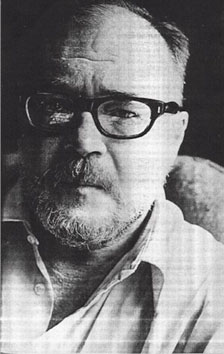Death Will Come and Will Have Your Eyes by Cesare Pavese
Cesare Pavese's "Death Will Come and Will Have Your Eyes" was among the poems found in his desk after his suicide. Considering the circumstances, it's strikingly haunting.
Death will come and will have your eyes—
this death that accompanies us
from morning till evening, unsleeping,
deaf, like an old remorse
or an absurd vice. Your eyes
will be a useless word,
a suppressed cry, a silence.
That’s what you see each morning
when alone with yourself you lean
toward the mirror. O precious hope,
that day we too will know
that you are life and you are nothingness.
Death has a look for everyone.
Death will come and will have your eyes.
It will be like renouncing a vice,
like seeing a dead face reappear in the mirror,
like listening to a lip that’s shut.
We’ll go down into the maelstrom mute.
--Translated by Geoffrey Brock
 Cesare Pavese (1908-1950), a poet, novelist and critic, was a major Italian author of the 20th Century.
Cesare Pavese (1908-1950), a poet, novelist and critic, was a major Italian author of the 20th Century.
Death will come and will have your eyes—
this death that accompanies us
from morning till evening, unsleeping,
deaf, like an old remorse
or an absurd vice. Your eyes
will be a useless word,
a suppressed cry, a silence.
That’s what you see each morning
when alone with yourself you lean
toward the mirror. O precious hope,
that day we too will know
that you are life and you are nothingness.
Death has a look for everyone.
Death will come and will have your eyes.
It will be like renouncing a vice,
like seeing a dead face reappear in the mirror,
like listening to a lip that’s shut.
We’ll go down into the maelstrom mute.
--Translated by Geoffrey Brock




